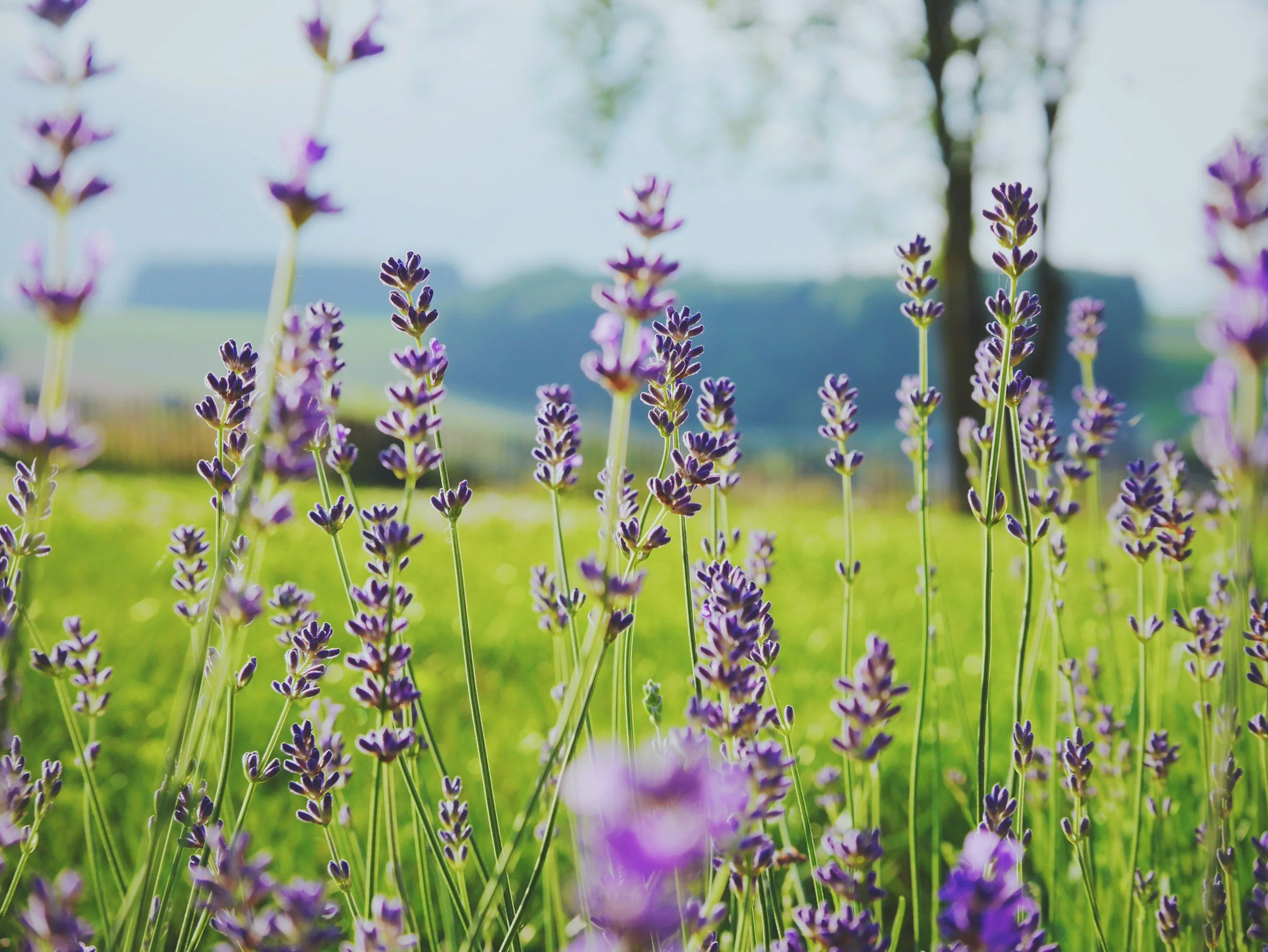Holistic Recommendations for Anxiety
The choices we make can help alleviate symptoms of anxiety, boost overall health, and promote optimal nervous system function. Research has shown magnesium, calcium, lysine, and B vitamins to have positive effects in reducing symptoms of anxiety. Magnesium supplementation is an effective way to treat anxiety and anxiety-related disorders when used in combination with other vitamins, minerals and herbal extracts.
A variety of anxiolytic herbs have been used for centuries for their calming effects. Medicinal herbs like lavender and chamomile are common traditional medicines used for thousands of years, possessing anxiolytic effects shown to calm and relax the body and mind. Lavender and chamomile are both anti-inflammatory and high in antioxidants. The chemical composition of lavender (e.g. linalool and linalyl acetate) have been proposed as being responsible for the perceived anxiolytic effects. Lavender has been found most effective when ingested over aroma therapeutic methods. Chamomile is one of the most well documented plants due to the diversity of health benefits. Chamomile is a popular tea preparation, but the plant is best tinctured to properly extract the unstable essential oils including the terpenoids a-bisbolol and its oxide azulenes chamazulene. Recent studies show chamomile extract to have a modest anxiolytic effect in patients with Generalized Anxiety Disorder. Both chamomile and lavender have been found generally safe with minimal adverse effects.
Other anxiolytic herbal supplements to consider are passionflower, motherwort, valerian, western vervain, milky oats, kava, and St. John’s wort. More research needs to be conducted to assess efficacy of treatment based on quality, dosing, interactions, side effects, and proposed benefits.
Medicine comes in many forms. Creating a lifestyle that honors movement, mindfulness, sleep, nourishment, connection, and nature can influence anxiety. The cumulative effect of lifestyle practices may encourage greater treatment outcomes. Exercising and practicing mindfulness techniques like deep breathing, yoga, and meditation have shown to be effective methods for easing anxiousness. A mindful eating practice encourages presence and becoming more aware of the body. The mind-body connection builds autonomy and confidence to make food choices that are supportive. Journaling is a great way to capture thoughts, do problem solving, and express thoughts and somatic sensations. These practices are intended to keep the mind present, centered, and calm.
A variety of factors can contribute to the persistence and severity of anxiety, but research shows eating the SAD (Standard Amercian Diet) diet, and consuming caffeine and alcohol can worsen symptoms. While some factors may be uncontrollable, eating a nutritious diet has shown positive results. An optimal diet considers nutrition, movement, connection, creativity and multiple ways of being. Curiosity creates endless ways to be kind to self and heal.
Holistic remedies and herbal medicine are valuable options for treating anxiety, but more research needs to be conducted for effectiveness and the cumulative effects of supplementation.
Lakhan and Vieira, 2010, Prousky, 2012, Perry, Terry, Watson, & Ernst E. 2012, Srivastava, Shankar, & Gupta, 2010, Jordan, 2013

